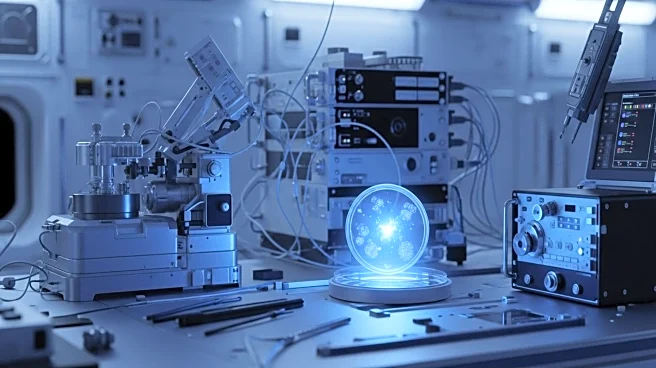What's Happening?
Scientists have conducted an experiment on the International Space Station (ISS) to study the effects of space conditions on reproduction. The study involved cryopreserved mouse spermatogonial stem cells that spent six months on the ISS. The findings revealed no increase in apoptosis or DNA damage, suggesting that space conditions may not adversely affect these cells. This research is part of a broader inquiry into the feasibility of human reproduction in space, addressing concerns about cosmic radiation exposure.
Why It's Important?
Understanding reproduction in space is crucial for the future of human space exploration and colonization. The ability to safely reproduce in space environments is essential for long-term missions and potential settlement on other planets. This study provides promising insights into the resilience of reproductive cells in space, potentially paving the way for further research and technological advancements in space travel. It also addresses concerns about the impact of cosmic radiation on human health and reproduction.
What's Next?
Further research is needed to explore the long-term effects of space conditions on human reproductive systems. Scientists may conduct additional experiments to assess the viability of other reproductive cells and processes in space. The findings could influence future space mission planning and the development of technologies to protect human health during extended space travel.








